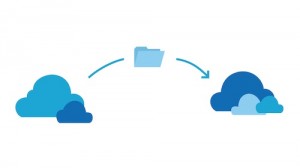Hot Cloud Swap: Migrating a Database Cluster with Zero Downtime by Jennifer Rullmann.
By now, you may have heard about, seen, or even tried your hand against the fault tolerance of our database. The Key-Value Store, and the layers that turn it into a multi-model database, handle a wide variety of disasters with ease. In this real-time demo video, we show off the ability to migrate a cluster to a new set of machines with zero downtime.
We’re calling this feature ‘hot cloud swap’, because although you can use it on your own machines, it’s particularly interesting to those who run their database in the cloud and may want to switch providers. And that’s exactly what I do in the video. Watch me migrate a database cluster from Digital Ocean to Amazon Web Services in under 7 minutes, real-time!
Its been years but I can remember as a sysadmin switching out “hot swapable” drives. Never lost any data but there was always that moment of doubt during the rebuild.
Personally I would have more than one complete and tested backups, to the extent that is possible, before trying a “hot cloud swap.” That may be overly cautious but better cautious than crossing into the “Sony Zone.”
At one point Jennifer says:
“…a little bit of hesitation but it worked it out.”
Difficult to capture but if you look at time marker 06.52.85 on the clock below the left hand window, writes start failing.
It recovers but it is not the case that the application never stops. At least in the sense of writes. Depends on your definition of “stops” I suppose.
I am sure that the fault tolerance build into FoundationDB made this less scary but the “hot swap” part should be doable with any clustering solution. Yes?
That is you add “new” machines to the cluster, then exclude the “old” machines from the cluster, which results in a complete transfer of data to the “new” machines, at which point you create new coordinators, exclude the “old” machines from the cluster and then eventually you close the “old” machines. Is there something unique about that process to FoundationDB?
Don’t get me wrong, I am hoping to learn a great deal more about FoundationDB in the new year but I intensely dislike distinctions between software packages that have no basis in fact.
